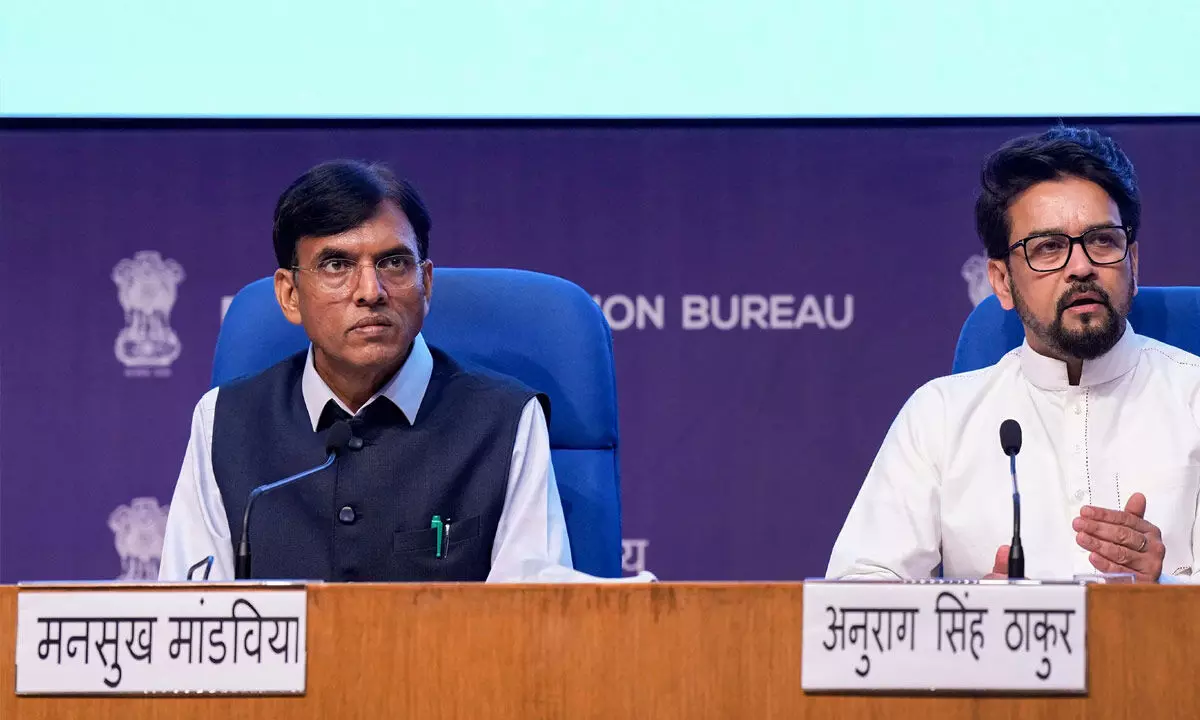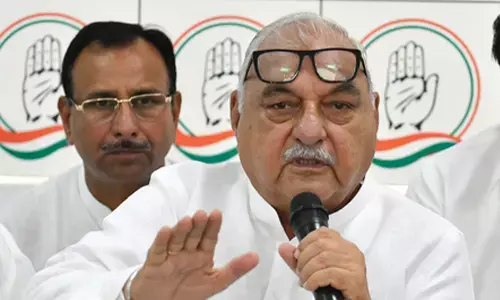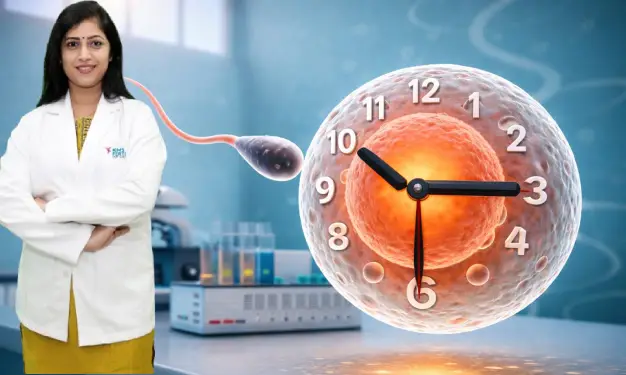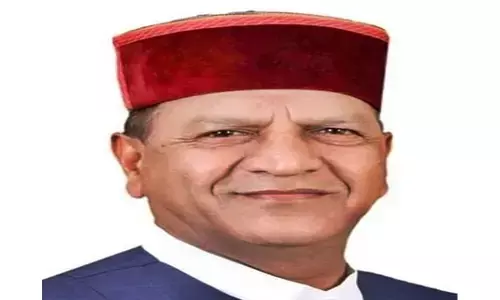Govt approves PM-PRANAM to boost balanced use of fertilisers

Union Minister for Information & Broadcasting and Youth Affairs & Sports Anurag Singh Thakur with Union Minister for Health & Family Welfare and Chemicals & Fertilizers Mansukh Mandaviya addresses a press conference on Cabinet Decisions, in New Delhi on Wednesday
The Centre on Wednesday approved a new scheme PM-PRANAM to incentivise states to promote alternative fertilisers and reduce the use of chemical fertilisers and also decided to continue the current urea subsidy scheme for three years ending March 2025, with an outlay of Rs 3.68 lakh crore.
New Delhi: The Centre on Wednesday approved a new scheme PM-PRANAM to incentivise states to promote alternative fertilisers and reduce the use of chemical fertilisers and also decided to continue the current urea subsidy scheme for three years ending March 2025, with an outlay of Rs 3.68 lakh crore.
That apart, the Cabinet Committee on Economic Affairs (CCEA), chaired by Prime Minister Narendra Modi, approved an outlay of Rs 1,451 crore subsidy to promote organic manure, taking the total package to over Rs 3.70 lakh crore. The CCEA also decided to introduce sulphur-coated urea (Urea Gold) in the country for the first time to address sulphur deficiency in the soil. Briefing media, Union Chemicals and Fertilisers Minister Mansukh Mandaviya said the CCEA has approved a scheme PM-PRANAM (PM Programme for Restoration, Awareness, Generation, Nourishment and Amelioration of Mother Earth). "PM-PRANAM is aimed at saving the soil and promote sustainable balanced use of fertilisers.
The scheme involves the participation of the state governments," he said. Under the scheme, Mandaviya said that the states, which will adopt alternative fertilisers will be incentivised with the subsidy that is saved by reducing the use of chemical fertilisers. Citing example, suppose a state is using 10 lakh tonne of conventional fertiliser, and if it reduces its consumption by 3 lakh tonne, then the subsidy saving would be Rs 3,000 crore. Out of that subsidy savings, the Centre will give 50 per cent of it -- Rs 1,500 crore to the state for promoting the use of alternative fertiliser and other development works, he added.









